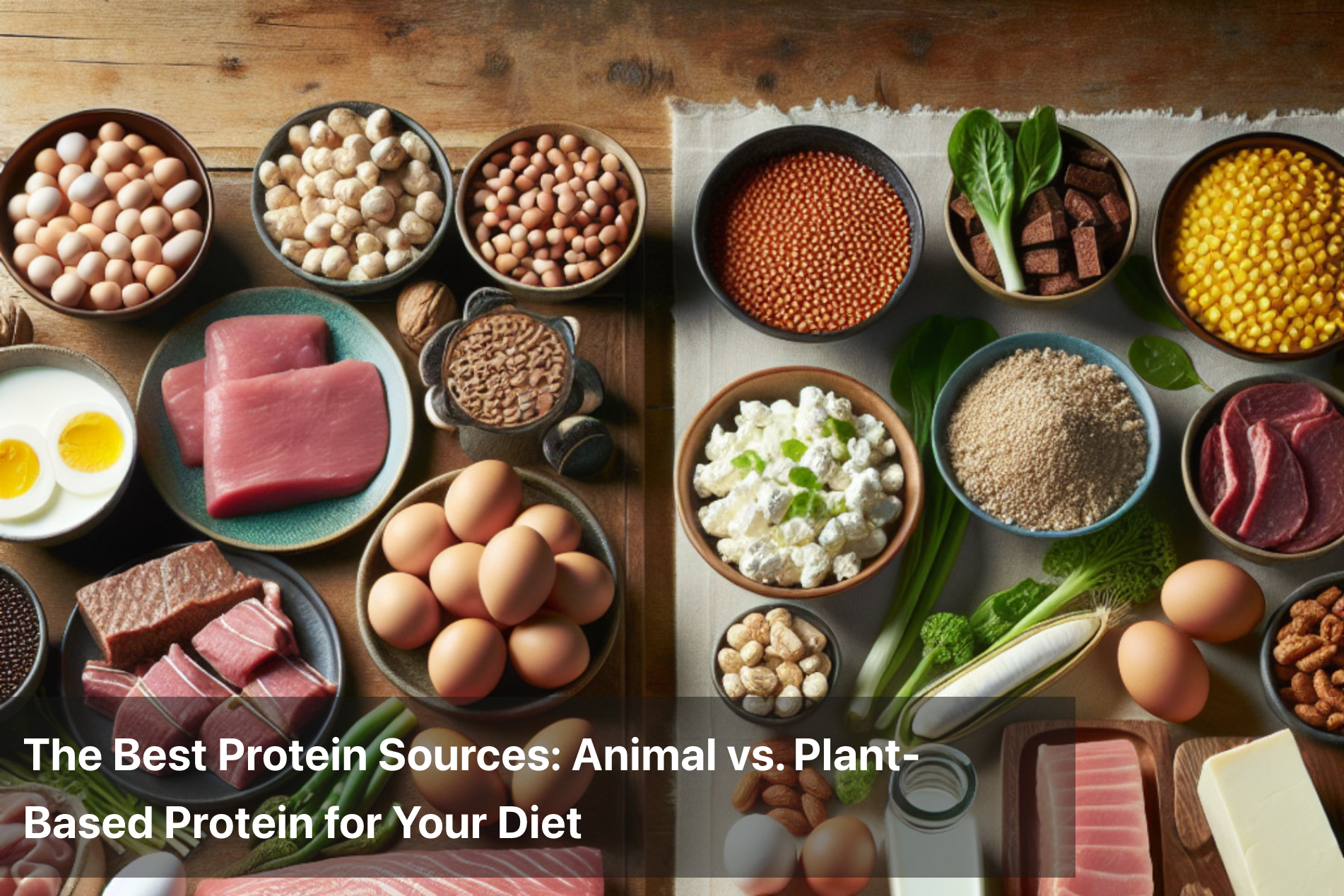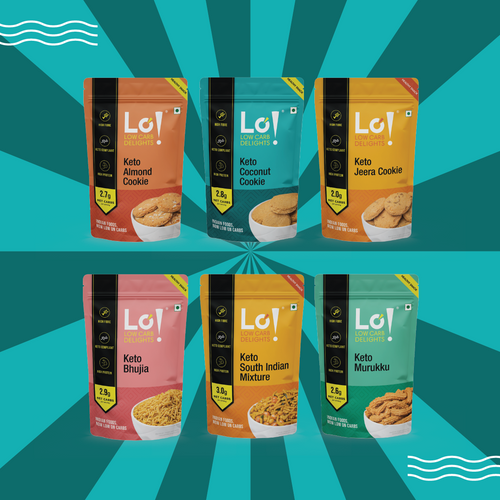
The Best Protein Sources: Animal vs. Plant-Based Protein for Your Diet
Protein plays a vital role in maintaining muscle, repairing tissues, supporting immune function, and fueling the body’s metabolic processes. With growing interest in healthier eating patterns and sustainable nutrition, the debate between animal-based and plant-based protein sources has become more prominent than ever.
Each type of protein offers unique nutritional benefits, and the best choice often depends on individual health goals, dietary preferences, ethical beliefs, and lifestyle. Understanding the differences, advantages, and limitations of both can help create a balanced and nutrient-rich diet tailored to personal needs.

What Makes a Protein Source “Good”?
Not all proteins are created equal. The quality of a protein source is determined by its amino acid profile, digestibility, and bioavailability—how efficiently the body absorbs and uses it.
Complete proteins contain all nine essential amino acids the body cannot produce on its own. Most animal proteins fall into this category. Many plant proteins are incomplete, meaning they lack one or more essential amino acids. However, combining different plant-based sources can create a complete profile.
Other factors that contribute to a protein source's value include its content of vitamins, minerals, fiber, fat, and potential allergens.
Nutritional Comparison: Animal vs. Plant Protein
Animal proteins generally offer a concentrated source of complete protein with high digestibility. Common sources include meat, poultry, eggs, fish, dairy, and whey. These also provide essential nutrients like vitamin B12, iron (heme form), zinc, and omega-3 fatty acids—nutrients that are more bioavailable in animal products.
Plant proteins, such as legumes, nuts, seeds, soy, tofu, tempeh, and whole grains, are often rich in fiber, antioxidants, and phytonutrients. They contain little to no saturated fat and cholesterol, making them heart-friendly. However, they may require more variety to meet amino acid needs.
|
Protein Source |
Complete Protein? |
Digestibility |
Other Nutrients |
|---|---|---|---|
|
Chicken breast |
Yes |
High |
B vitamins, selenium, low in fat |
|
Eggs |
Yes |
Very high |
Choline, vitamin D, antioxidants |
|
Greek yogurt |
Yes |
High |
Calcium, probiotics, B12 |
|
Lentils |
No (incomplete alone) |
Moderate |
Fiber, iron (non-heme), folate |
|
Tofu |
Yes |
Moderate to high |
Iron, calcium (if fortified), low fat |
|
Quinoa |
Yes |
High |
Magnesium, fiber, gluten-free |
|
Almonds |
No |
Moderate |
Vitamin E, magnesium, healthy fats |
Symptoms of Inadequate or Imbalanced Protein Sources
Protein quality impacts not just muscle maintenance but also mood, skin health, and immunity. Inadequate intake or relying on low-quality sources can result in various symptoms:
-
Muscle loss or weakness: Low-quality or incomplete proteins can hinder muscle repair and strength development.
-
Poor skin, hair, and nails: Protein is critical for the structural integrity of skin and hair; deficiencies often lead to brittleness or dullness.
-
Mood swings or brain fog: Amino acids like tryptophan and tyrosine influence neurotransmitters that affect mood and cognition.
-
Weakened immunity: Antibodies and immune cells rely on protein for production and repair.
These symptoms may be subtle initially but can progress over time if dietary quality isn't addressed.
Benefits of Animal-Based Proteins
Animal-based proteins offer several benefits, especially for individuals with higher protein requirements:
-
High biological value: Animal proteins are more readily absorbed and used by the body.
-
Muscle development: Ideal for athletes or people recovering from injury due to their anabolic (muscle-building) properties.
-
Convenient quantity: Smaller portions deliver higher protein content, which helps in calorie-controlled diets.
However, excessive consumption—especially of red or processed meats—can increase the risk of cardiovascular disease, inflammation, and high cholesterol. Choosing lean cuts and limiting processed meats is key to keeping animal protein heart-healthy.
Benefits of Plant-Based Proteins
Plant-based protein sources are associated with a range of health and environmental benefits:
-
Lower risk of chronic diseases: Diets rich in plant proteins are linked to reduced risk of heart disease, type 2 diabetes, and some cancers.
-
Fiber and gut health: Plant foods are high in fiber, which supports digestion and helps maintain a healthy gut microbiome.
-
Sustainable nutrition: Producing plant protein has a lower environmental impact in terms of land use, water consumption, and greenhouse gas emissions.
For optimal benefits, variety is important. Combining foods like beans and rice, hummus and whole wheat pita, or peanut butter on whole grain bread helps ensure a complete amino acid profile.
Factors That Influence Your Choice
Several factors determine whether plant or animal protein fits better into your diet:
-
Digestive health: Some individuals tolerate plant proteins better, especially when dealing with lactose intolerance or sensitivities.
-
Ethical and environmental concerns: People following vegetarian or vegan diets often choose plant-based sources for ethical or sustainability reasons.
-
Convenience and availability: Animal proteins are often more portable or require less preparation for the same amount of protein.
-
Medical conditions: Kidney concerns, cholesterol levels, or hormonal imbalances might affect which type of protein is advisable.
Consulting a healthcare professional or nutritionist can help match protein choices to personal health goals.
Balancing Both for Best Results
A flexible approach often works best. Combining both animal and plant proteins in a balanced diet can offer the nutritional advantages of each without overreliance on a single category. This approach allows for better nutrient coverage, more culinary variety, and sustainable eating habits.
For example, pairing grilled chicken or fish with lentil soup and a side of quinoa salad creates a protein-packed, nutrient-dense meal. This method helps control saturated fat intake while maintaining amino acid balance and fiber diversity.

Sample Mixed Protein Meal Plan
|
Meal |
Food Combination |
Protein Content (Approx.) |
|---|---|---|
|
Breakfast |
Scrambled eggs + whole grain toast + almonds |
25g |
|
Mid-Morning |
Greek yogurt with flaxseeds |
15g |
|
Lunch |
Grilled chicken with quinoa and mixed vegetables |
35g |
|
Evening Snack |
Roasted chickpeas and a small fruit smoothie with soy milk |
18g |
|
Dinner |
Tofu stir-fry with brown rice and steamed broccoli |
30g |
|
Total |
|
123g |
This kind of plan combines both protein types, enhancing overall nutrient intake without relying too heavily on one source.
Summary
Both animal and plant-based protein sources have valuable roles to play in a healthy diet. Animal proteins provide complete amino acids in concentrated forms, while plant proteins offer fiber, antioxidants, and heart-protective benefits. The most effective approach often lies in balance—leveraging the strengths of each source to meet nutritional needs without excess.
By selecting a variety of clean, whole food protein options and adjusting intake based on goals and health status, you can build a sustainable and enjoyable diet. Lofoods offers protein-rich, low-carb options that support both plant-based and mixed-diet lifestyles, making it easier to nourish your body, maintain energy, and stay on track with your health journey.
This Blog post is an initiative by Lo! Foods, to provide accurate and Nutritionist / Doctor approved information related to Health. Lo! Foods is India's leading brand for Everyday Functional Foods. Foods designed for specific Health conditions or Needs. Lo! Foods also runs India's largest range of Low Carb Healthy Cloud Kitchens, under the brand names of Lo!, ProteinChef, ATH (All Things Healthy) and DiabeSmart.















Leave a comment
Your email address will not be published.